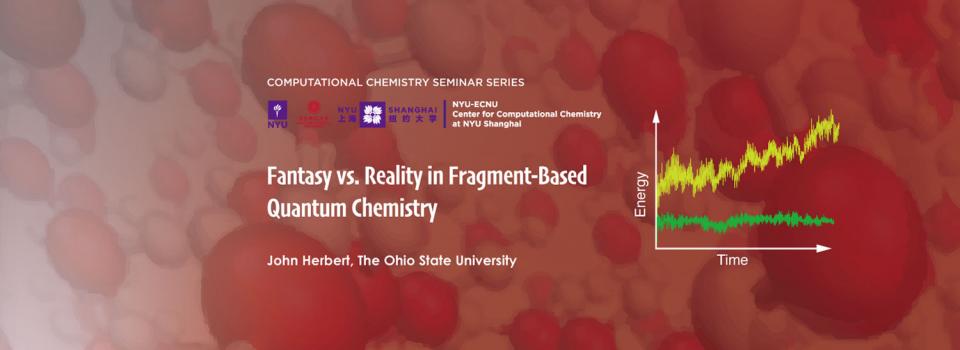
Abstract:
Fragment-based quantum chemistry represents an attempt to sidestep the scaling bottleneck in ab initio quantum chemistry, by decomposing up a large molecular system into tractable subsystems in a physically motivated way. The steep nonlinear scaling of ab initio calculations is thus replaced by a distributed computing cost over a large number of processors, with numerous small calculations replacing a single intractable one.
My group has developed a “generalized many-body expansion” that provides a theoretical framework for understanding connections between various fragmentation methods introduced by others, and which provides a route to high-accuracy calculations in very large systems, albeit at considerable cost. Other methods have proven to be more scalable but less accurate, and this talk will discuss how this gap can be bridged. Along the way, we will encounter some of the “dirty secrets” that are not often discussed, such as whether fragmentation can provide accurate answers for the very challenging problem of relative conformational energies; whether fragmentation is stable in large basis sets; and whether correct analytic gradients can be formulated for stable ab initio molecular dynamics simulations.
Biography:
John Herbert received his Ph.D. from the University of Wisconsin in 2003. Following postdoctoral work at the University of California-Berkeley, he joined the faculty at Ohio State University in 2006, where he has held the rank of Professor since 2014. His work focuses on the development of new methods and algorithms to extend quantum chemistry into macromolecules and condensed-phase environments, with a specific emphasis on making contact with molecular spectroscopy. He is one of the leading developers of the Q-Chem electronic structure software. Prof. Herbert has been a recipient of a National Science Foundation CAREER Award, the Presidential Early Career Award for Scientists and Engineers (PECASE), and an Alexander von Humboldt Foundation Fellowship.
Seminar Series by the NYU-ECNU Center for Computational Chemistry at NYU Shanghai


